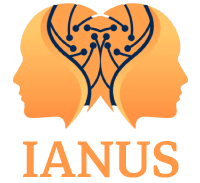For the Erasmus University Rotterdam, the IANUS Project is a trailblazing collaboration between two faculties – of Philosophy and of History, Culture and Communications. It is coordinated by the Erasmus School of Philosophy, under the guidance of Professor Hub Zwart, dean of Erasmus School of Philosophy, who is joined by dr. Yogi Hendlin. To increase trust in science, professor Zwart believes the public needs to be able to understand how complex and nuanced science is. He thereby emphasizes that there is room for healthy skepticism towards science and scientists, which is integral to doing science. In his own research, he focuses on philosophical and ethical issues in emerging life sciences and is also interested in research integrity and academic authorship.
Dr. Hendlin is an environmental philosopher, public health scientist, and assistant professor at the Erasmus School of Philosophy. He has published together with the Union of Concerned Scientists to mapping how industries can manipulate scientific methods and results, and how scientific integrity can be restored.
The Erasmus School of History Culture and Communications’ (ESHCC) participation in the IANUS project is led by Dr. Jason Pridmore, ESHCC Vice Dean of Education and Associate Professor in the Department of Media and Communication. His own research focuses on digital science communication, digital identification and security issues, the use of social media, and consumer data as surveillance practices. Pridmore is keen to apply his expertise on digitalization and social media to for example, map pathways for incorporating social media in science communication to increase trust in science.
He is joined by Dr. Simone Driessen, assistant professor in Media & Popular Culture at Erasmus University. Driessen is particularly interested in audience (dis)engagement and is exploring audiences’ perception and involvement in cancel culture. Dr. Driessen looks forward to working on the project in the upcoming years and researching trust in science communication, particularly by focusing on digital and popular ways of communicating science, via TikTok for example.
Emmy Hermans is a research assistant and a student in the Research Master programme Sociology of Culture, Media, and Society at Erasmus University Rotterdam. Hermans is mostly interested in the exclusion and inclusion of social groups in society through popular practices and is therefore excited to explore how science communication can reach underserved audiences who are less visible in scientific debates.
